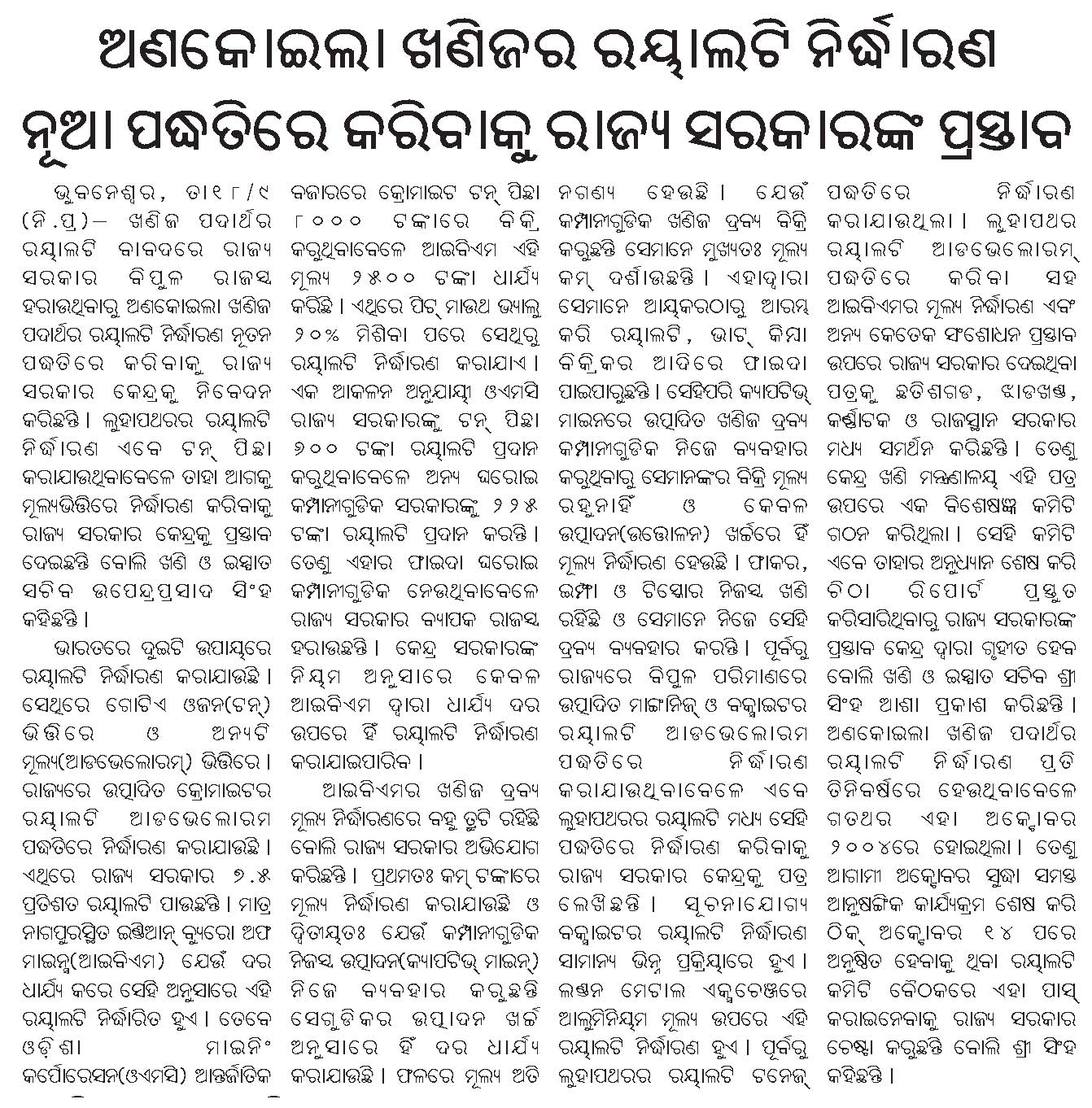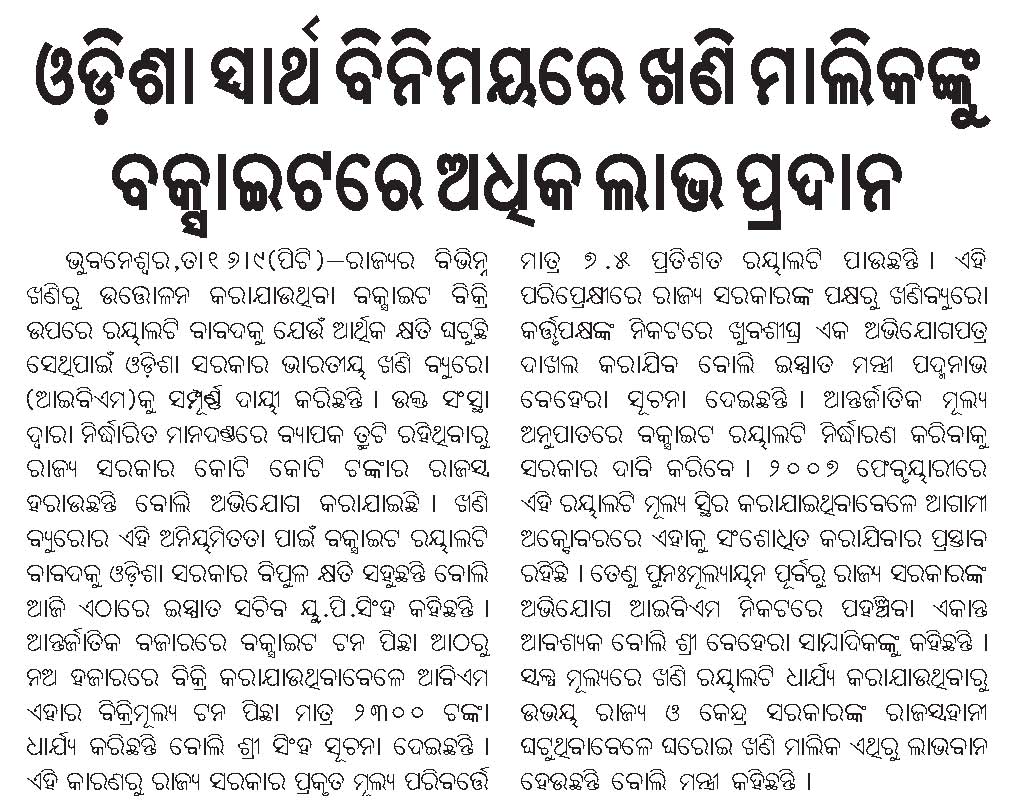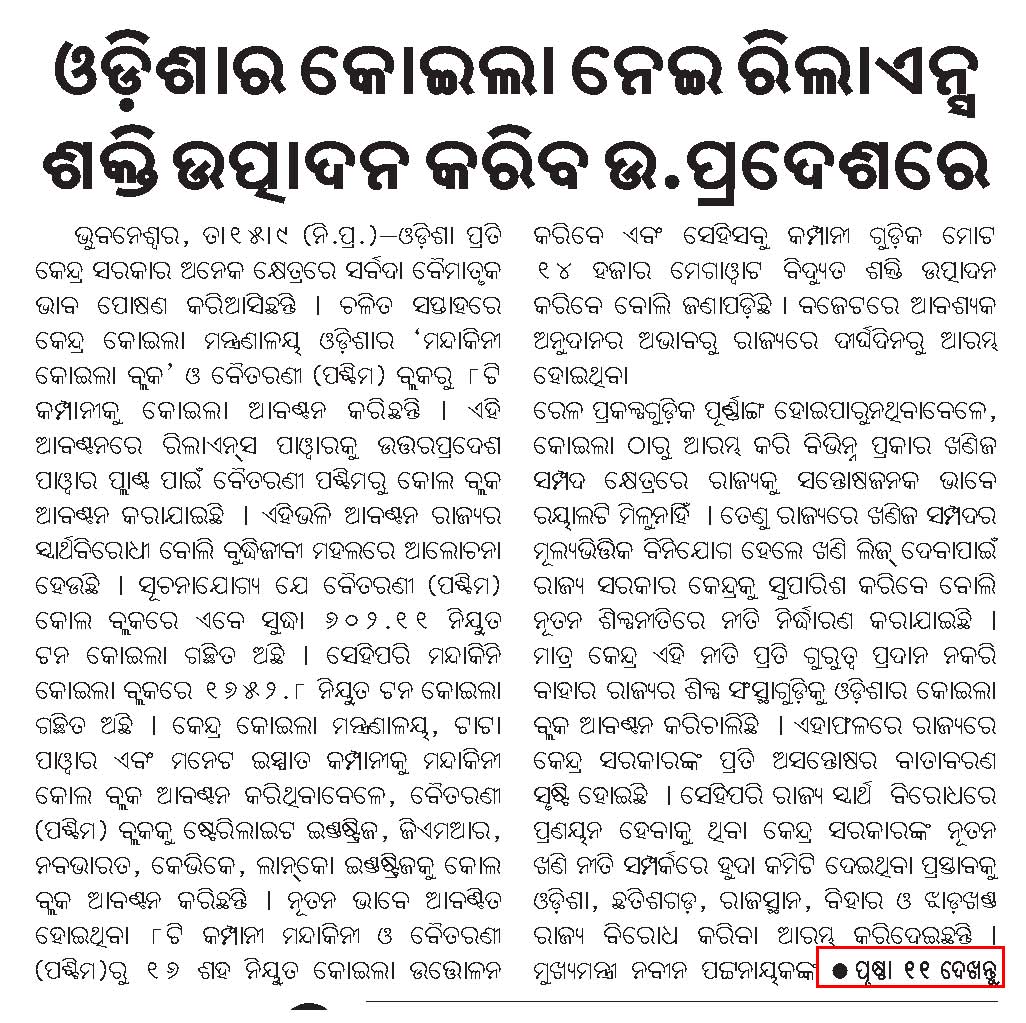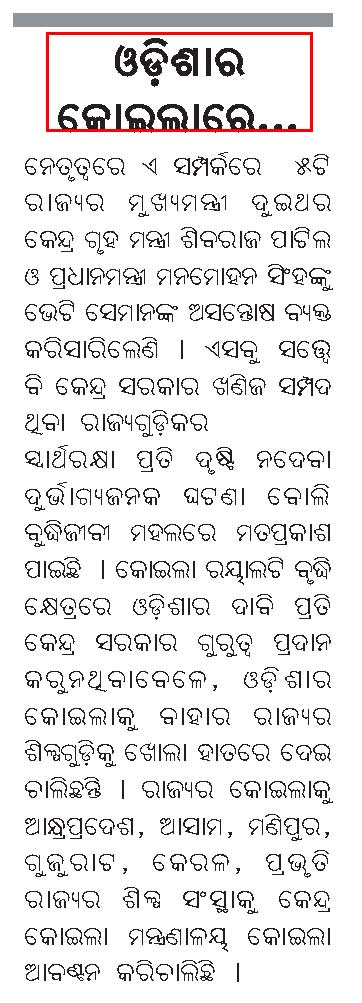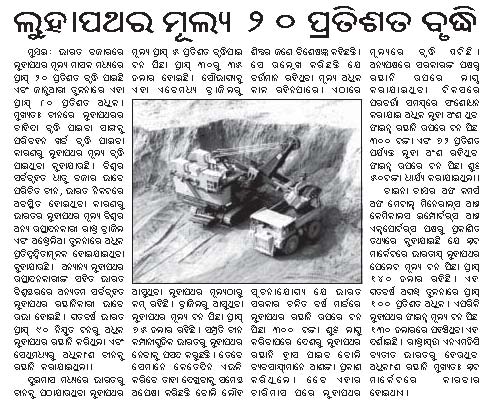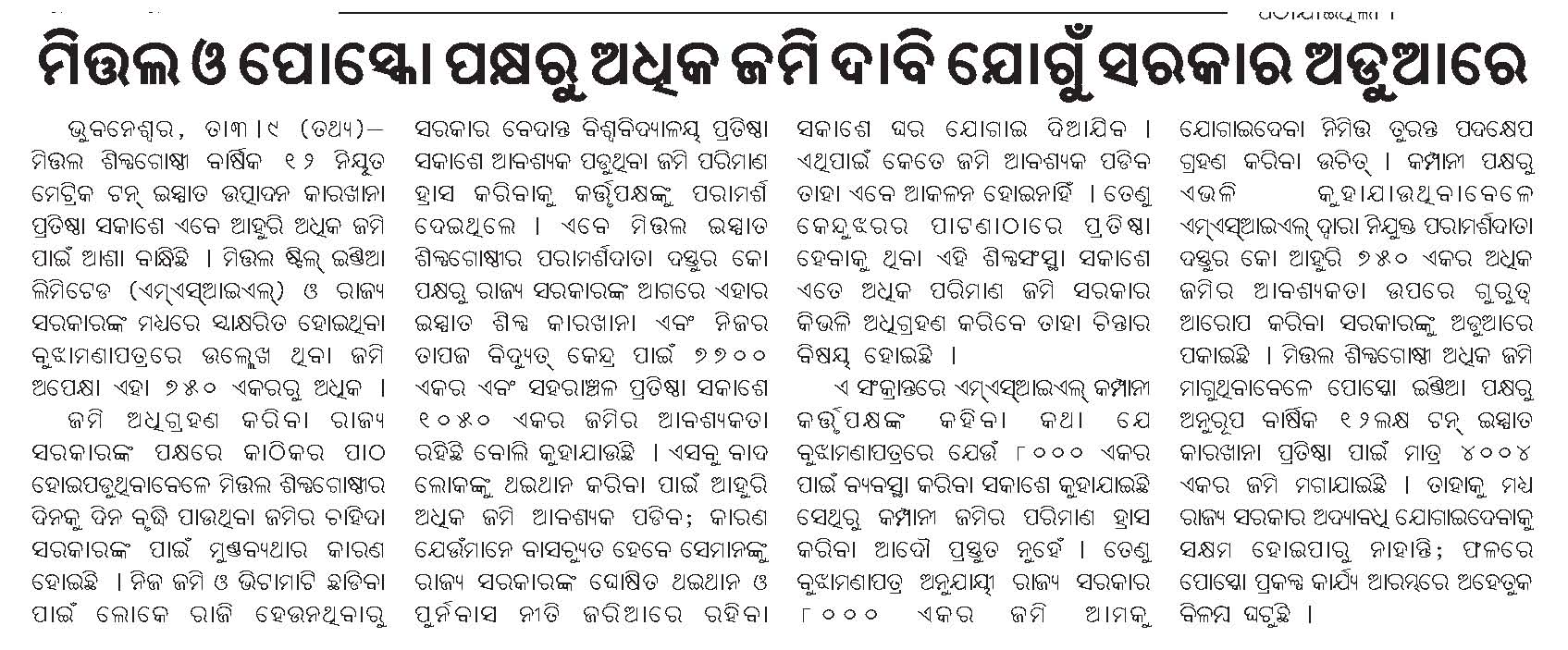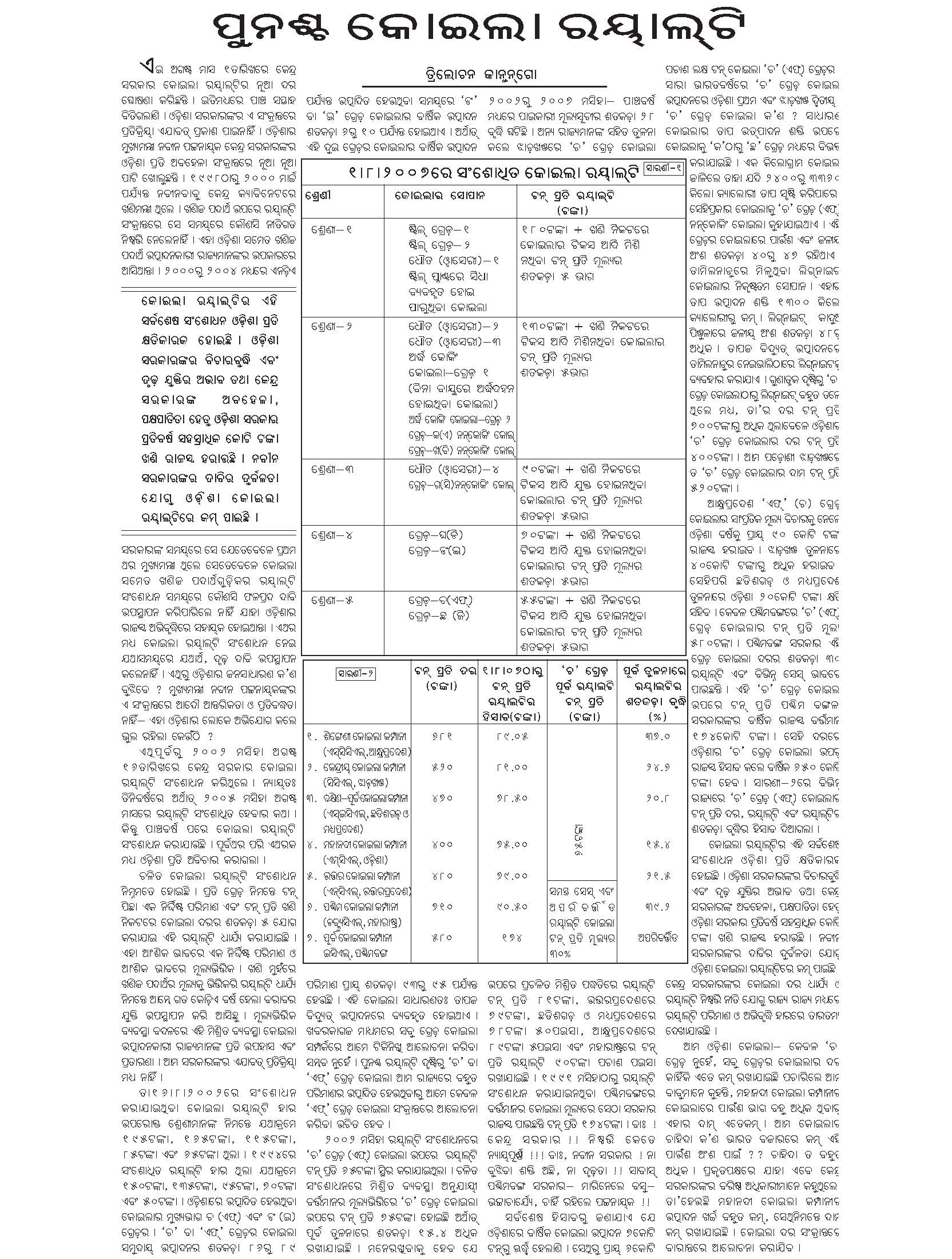Supreme Court asks Vedanta’s Indian unit Sterlite to plough 5% of its profits towards local development
Bauxite, Value Addition, Vedanta Comments Off on Supreme Court asks Vedanta’s Indian unit Sterlite to plough 5% of its profits towards local developmentUpdate: Livemint has a more succinct report.
The court suggested that VAL’s holding company, Sterlite Industries (India) Ltd, file an affidavit with three undertakings:
- commit to pay Rs50 crore as a security deposit to the court;
- agree to pay 5% of the net profit accruing from all its mining activities or Rs10 crore, whichever was greater, towards tribal development and environmental safeguards; and
- present a report on employment opportunities that the project would generate.
Following is an excerpt from a Reuter’s report on this.
The Supreme Court set new conditions on Britain’s Vedanta Resources Plc and its Indian unit on Friday before allowing it to mine bauxite in sacred, forested hills in the east of the country.
Vedanta wants to dig open-cast mines in the Niyamgiri hills in Orissa to feed an alumina refinery it has already built in the area, as part of an $800 million project expected initially to produce 1 million tonnes of alumina per year.
At an earlier hearing, Vedanta had promised to invest 1.12 billion rupees ($28.4 million) to develop the poor region, but a three-judge bench said it wanted this commitment to be made by the firm’s Indian unit, Sterlite Industries Ltd.
“What is Vedanta?,” the bench said. “Vedanta is not listed in India. So let Sterlite give an undertaking.”
Thousands of tribal people say the mine will destroy hills they consider sacred, force them from their homes and destroy their livelihoods, which are based on farming millet, hunting and collecting fruits and spices from the forests.
Environmentalists say the open-cast mine would also wreck the rich biodiversity of the remote hills and disrupt key water sources that supply springs and streams in the area and feed two rivers that irrigate large areas of farmland.
The court asked Sterlite to pay five percent of its annual profits from mining throughout India to the state government to be ploughed into developing the region.
It also asked the company to deposit 500 million rupees ($12.7 million) with the state government, and specify how many local people would be employed in the project.
When Sterlite objected to the conditions, the court adjourned the case until the company made a formal response.
The state and central government both back the plan, as part of efforts to industrialise and exploit the mineral resources of underdeveloped eastern India.
The Environment Ministry told the Supreme Court earlier this month that the mining would only affect a marginal amount of forest land.
It also promised “special efforts” would be made to manage and conserve wildlife in the area, which is part of an elephant corridor, shelters leopards and is the only known home in Orissa of the rare golden gecko.
If the state government and central government back this plan then they should require this from all mining companies in India not just Sterlite. It would be an excellent move.
